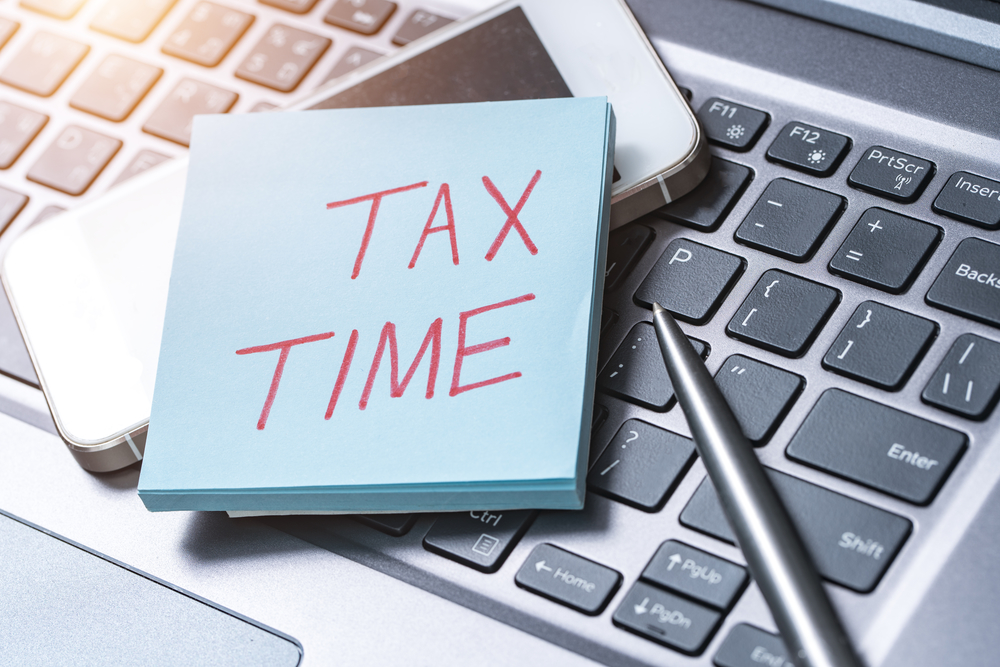Tax season is coming up fast! That means a bit of math, an alphabet soup of forms, and hours of pouring over your records. Instead of dreading taxes, get in the know on all things small business. Your taxes depend on the business structure, what it sells, and the state it resides in. Yet, there are a few universal things small business owners should know when it comes to taxes.
New Business Tax Information
If this is your first tax season with your business, then the first step is to get a Federal Tax Identification Number (aka Employer ID Number) and a state tax number. EIN is assigned to one person who has a Taxpayer Identification Number and will be referred to as the “responsible party” on forms. You apply for free online through the form SS-4 or through an interview. Check with your state to see what they require to apply for a tax number.
The next step is to decide on a “tax year” which is either based on the calendar year or the fiscal year. The calendar year is exactly how it sounds in that your tax year begins on January 1st and ends on December 31st. Fiscal years are the same 12 months except it can end on any last day of a month besides December.
Labeling Your Business Structure
Everything about your taxes comes down to the structure of your business as it determines which form you need to file. As your business expands, you may move between business structures, so check with your accountant to ensure you file the correct form. There are sole proprietors, partnerships, LLC, S corporations, B corporations, C corporations, and nonprofits. Below is a handy chart from the SBA to help you understand the differences between them all.

Knowing Your Tax Deadlines
While deadlines are not all the same, every small business owner needs to know when their forms are due. You can stay up to date with reminders by downloading the IRS online tax calendar. For the 2021 calendar year federal income tax return:
March 15th, 2022, is the deadline for partnerships, LLC, or S corporations.
April 18th, 2022, is the deadline for a sole proprietor filing as an individual (aka independent contractor) or C corporation. The reason it is not April 15th is because of the federal holiday to celebrate Emancipation day.
Be aware that state taxes have different deadlines and requirements than federal taxes! Find out your state tax deadline and requirements here.
Track Your Records
To make tracking your business income and expenses easier, use an accounting system that records and dates everything. This includes invoices, bank statements, receipts, and sale slips. Also, ensure your personal funds and expenses do not mix with your business by having separate accounts and credit cards.
Professional Advice
Not every business has the money to hire an accountant, but consulting with one is better than nothing. Accountants can do more than track income and spending. They monitor your cash flow, gross and net income. Plus, they will likely know the answer to any of your tax-related questions. Better to have asked than not know and be audited.
The Difference Between Net and Gross Income
Gross profit is the company’s earned profit subtracted by the production and distribution cost. It shows how efficient a company is at managing production costs while increasing revenue. Often, investors will be looking at your gross profit (aka gross income) to see how worthy your business is to invest in. To calculate, gross income equals the net sales minus the cost of goods sold (this includes utilities, equipment, labor, materials, shipping, etc.).
Net income (aka the bottom line) is the total remaining profit after all subtracted expenses and costs. It determines the company’s overall profitability and is used for insight into the efficiency of the management. To calculate, net income equals the gross profit minus operating expenses, other expenses, taxes, and any debt. For new businesses, make sure you include the extra expense of setting up such as website domains, any licenses, and store rent or purchase.
Besides reporting your net and gross income on your taxes, it may determine what deductibles you are available to receive. Read more on small business tax deductions here.
Excise Tax
Businesses that manufacture or sell certain products may be taxed for using various types of equipment, facilities, or products. Some specific items under the Excise tax include coal, fuel, sports wagering, indoor tanning service, and heavy highway vehicle use. Learn about the excise tax requirements and the forms to file here.
Business File Payment Plan
Worried about paying a lump sum for your taxes? Small businesses have the option to apply for a payment plan online. Your taxes will determine if you qualify for a payment plan option, so check with an accountant, consultant, or other advisors to find the best course of action.
The long-term payment plan can be automatic monthly withdrawals or non-direct debit monthly payments. Automatic monthly withdrawals or Direct Debit Installment Agreement (DDIA) costs an initial $31 to set up plus penalties and interest. Non-direct debit payments set up costs $130 plus penalties and interest. Find out if the business file payment plan is right for you here.
Still confused about taxes? The IRS has a small business and self-employed tax center to answer all of your tax-related questions. If you are looking for more support financially as a small business owner, then check out the benefits IAW gives to our members.




